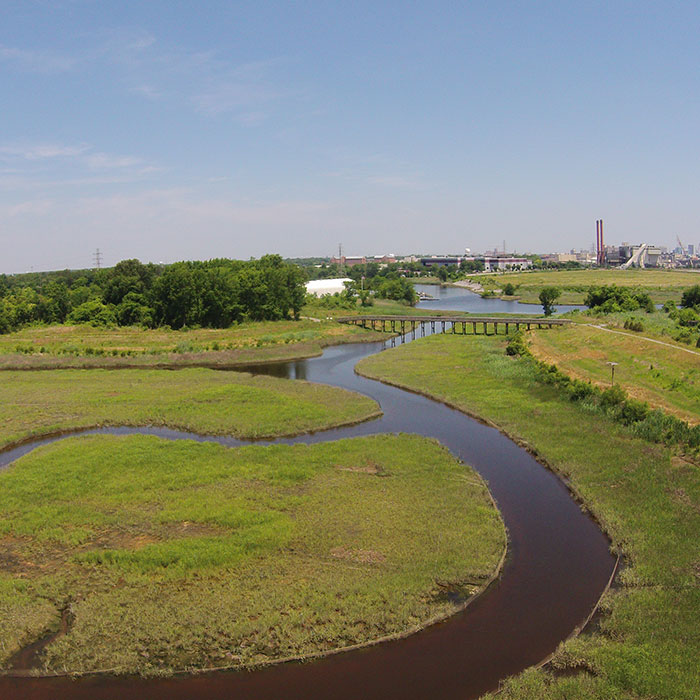Land Conservation Tax Benefits
The primary reason most landowners donate land or a conservation easement is to preserve the natural, scenic, and historical qualities of their land forever. Others may want to establish a legacy for their children and grandchildren. There also can be significant tax advantages associated with a donation.
Qualifications for Tax Benefits
A gift of property or conservation easement may qualify as a non-cash charitable gift which may yield a deduction for federal income tax purposes and a credit for Virginia state income tax purposes.
To realize those financial benefits a property or easement must:
- be given in perpetuity
- be given to a qualified governmental or non-profit organization to monitor
- have a qualified appraisal
- be donated exclusively for “conservation purposes” characterized by significant natural, scenic, historic, scientific, recreational, or open space value
In addition, there may be local property tax reductions and federal estate tax exemptions.
A qualified appraiser must establish the fee simple value of the property and the amount by which the restrictions in the easement reduce the property’s fee simple value (if applicable). The difference between the fee simple value and the fee simple value as restricted by the easement is the easement value, which is primarily based on the value of the development rights forgone by the donor. The appraised fee simple value or easement value is the basis for calculating tax benefits.


Federal Income Tax Deduction
Donations of property and conservation easements that meet federal tax code requirements may entitle the donor to federal income tax deductions. For tax year 2020 and thereafter, the deduction is limited to 50% of adjusted gross income, which if not used up in 2020, may be carried forward at 50% of adjusted gross income for an additional fifteen years or until the donation is fully expended, whichever comes first.
In addition, a farmer or rancher who receives in 2020 or thereafter more than 50% of adjusted gross income from the trade or business of farming or ranching is eligible for a tax deduction of 100% of adjusted gross income with the same carry forward right. IRS Form 8283 must be filed to obtain this deduction. Form 8283 requires attachment of a copy of the appraisal, an appraiser’s declaration, acknowledgement of the gift, copies of the deed of conservation easement as recorded, and a baseline documentation report.
Virginia State Income Tax Credit
A Virginia state tax credit has been established for donation of property and conservation easements at 40% of the value of the property or easement. The amount of the credit that may be used by a taxpayer may not exceed $20,000 for taxable year 2020 and $50,000 per taxable year thereafter, but any unexpended portion may be carried forward for the next 13 taxable years. For each taxpayer, in any one taxable year, the credit used may not exceed the amount of income tax otherwise due.
Any unexpended portion may be sold and transferred to another Virginia taxpayer. A recent tax court opinion suggests that the income from the sale of tax credits held for more than one year prior to sale may receive more favorable long-term capital gains treatment. Check with your tax advisor or attorney to determine whether and when tax credits should be sold.
Tax credits in excess of $1 million or more will be issued only if the conservation value of the donation has been verified by the Director of the Virginia Department of Conservation and Recreation (DCR) based on criteria adopted by the Virginia Land Conservation Foundation. Pre-filing review of the conservation value is available through DCR. There is a $75 million limit on the amount of tax credits that the Department of Taxation may issue in each calendar year. Form LPC-1 must be filed with the Department of Taxation for registration of credits and Form LPC-2 for transfer of credits.
Federal Estate Tax & Exclusion
Extinguishing some or all of the development rights for a parcel of land through a conservation easement may reduce the value of the land for estate tax purposes, thus reducing the estate taxes, often substantially. In addition, Section 2031(c) of the Internal Revenue Code provides an estate tax exclusion from the gross estate of up to 40% of the remaining encumbered value of the land (but not improvements on the land) protected by a qualified conservation easement. The exclusion is capped at $500,000 and is reduced if the conservation easement reduced the land’s value by less than 30% at the time of the contribution. To qualify the easement must prohibit all but “de minimis commercial recreational use.”
Local Property Taxes
Local property taxes may be reduced with respect to land (but not dwellings, farm buildings, or other improvements to the land). However, if land is already assessed at “use value,” in other words, enrolled in a local land-use assessment taxation program, an additional reduction in taxes is unlikely.
